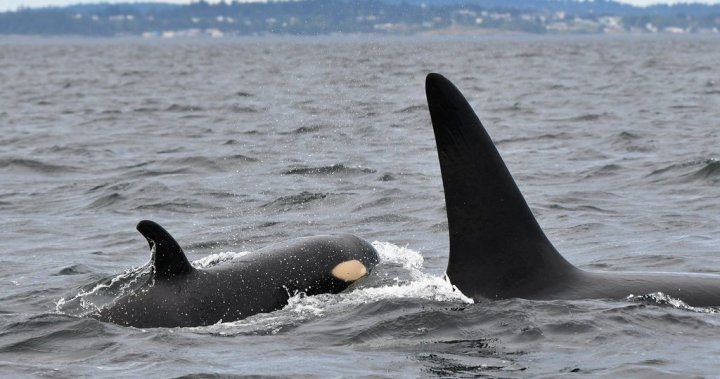In the deep, dark waters off Canada’s Pacific coast, a silent tragedy is unfolding. The Southern Resident orca population, once a thriving symbol of marine biodiversity, now teeters on the precipice of extinction with only 75 individuals remaining. This alarming decline represents more than just the potential loss of a magnificent species—it signals a profound ecological crisis that could reshape coastal ecosystems throughout British Columbia and beyond.
“We’re witnessing the slow disappearance of a keystone species,” says Dr. Emma Richardson, marine biologist with the Pacific Northwest Conservation Institute. “These orcas have cultural and ecological significance that cannot be overstated. Their extinction would create ripple effects throughout the entire marine food web.”
The primary culprit behind their decline is startlingly clear: starvation. Southern Resident orcas feed almost exclusively on Chinook salmon, whose populations have plummeted due to habitat degradation, dam construction, and overfishing. Unlike their mammal-hunting Transient orca cousins, these specialized hunters cannot simply switch prey preferences—their entire cultural identity and hunting techniques have evolved around salmon.
Recent studies from the Department of Fisheries and Oceans Canada indicate that Southern Residents now spend significantly more time foraging while securing fewer calories, a desperate situation compounded by high levels of toxic contaminants in their blubber. These pollutants, including PCBs and flame retardants, compromise their immune systems and reproductive capabilities, creating a perfect storm of threats.
“The toxins accumulate throughout their lives and are passed from mother to calf,” explains Dr. Richardson. “When food is scarce, these orcas metabolize their fat reserves, releasing stored toxins directly into their bloodstream—essentially poisoning themselves from within.”
Vessel noise presents another significant challenge. The waters around Vancouver Island experience heavy maritime traffic, with the underwater cacophony disrupting the orcas’ ability to echolocate and communicate. Research published in the Canadian Journal of Marine Science demonstrates that Southern Residents lose approximately 5.5 hours of foraging time daily due to noise interference—time they desperately need for hunting.
The federal government has implemented protective measures, including expanded critical habitat designations and vessel distance regulations, but critics argue these efforts remain insufficient. Indigenous communities along the coast, who have maintained spiritual connections with these orcas for millennia, have been at the forefront of conservation efforts.
“Our ancestors understood the balance required to coexist with these beings,” says Elder James Wilson of the Lummi Nation. “Now we’re seeing the consequences of ignoring traditional knowledge and prioritizing industrial development over ecosystem health.”
The economic implications of losing Southern Residents extend beyond ecological concerns. British Columbia’s whale-watching industry generates approximately $250 million annually, supporting thousands of jobs in coastal communities. Furthermore, these orcas serve as ambassador species, drawing international attention to Canada’s conservation efforts and environmental policies.
Conservation biologists emphasize that saving Southern Resident orcas requires immediate, coordinated action: substantial increases in salmon restoration projects, stricter controls on marine pollutants, and expanded vessel-free sanctuaries. Critically, these measures must cross international boundaries, as the orcas’ range extends into U.S. waters.
“This isn’t just about saving orcas—it’s about recommitting to the health of our oceans,” says Marine Conservation Commissioner Theresa Williams. “The Southern Residents are telling us something profound about the state of our marine ecosystems. The question is: are we willing to listen before it’s too late?”
As Canadians face this potential ecological tragedy, we must confront a sobering reality: can a nation that prides itself on environmental leadership allow one of its most iconic marine species to vanish under its watch?

























